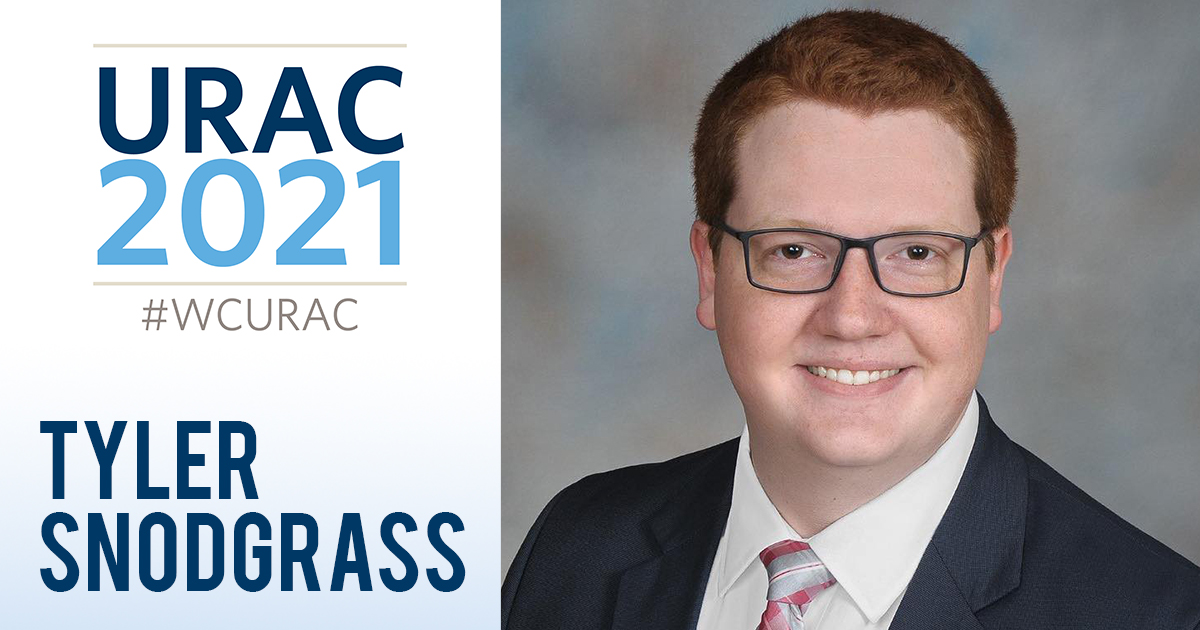News & Events
URAC Presenter: Senior neuroscience major examines common communication practice
Posted on Tuesday, April 20, 2021
 Tyler Snodgrass, one of the eight select podium presenters to be featured at this year’s Undergraduate Research and Arts Celebration (URAC) on Wednesday, April 21, will discuss his senior capstone project, “The Effects of Social Antecedents of Bulls--- on Bulls--- Detection.”
Tyler Snodgrass, one of the eight select podium presenters to be featured at this year’s Undergraduate Research and Arts Celebration (URAC) on Wednesday, April 21, will discuss his senior capstone project, “The Effects of Social Antecedents of Bulls--- on Bulls--- Detection.”
Snodgrass, a senior neuroscience major from Butler, Pa., examined the concern for evidence in communication.
“My goal was to see what social contexts allow people to accurately detect when someone is ‘bulls----ing’ or communicating without any concern for evidence,” Snodgrass said, adding that the three social contexts used were knowledge about a topic, whether someone was obligated to provide an opinion and how easily people believe they succeed without providing evidence.
“Initially, we were trying to see if those contexts affected one’s ability to detect bulls--- based on their perception of them,” Snodgrass said. “We found that perception does not affect detection, rather the conditions in which the communication was generated affects detection. The knowledge, obligation to provide an opinion, and the ease of communicating without evidence determines just how accurately someone is able to detect bulls---.”
Snodgrass’ research was based in social psychology, specifically examining means of interpersonal communication. He said Dr. Sandra Webster, professor of psychology, introduced him to the project idea and encouraged him to examine research done by Dr. John Petrocelli, a Westminster 1997 alumnus and former student of Webster’s.
“Upon looking into his research, I was hooked,” said Snodgrass. “I decided to extend Dr. Petrocelli’s study on social antecedents of bulls--- to examine detection, instead of generation. Dr. Petrocelli was kind enough to correspond with me and provide materials and guidance on the project.”
Because of the COVID-19 pandemic, Snodgrass said all data was collected online using the survey platform LimeSurvey and the crowdsourcing platform Amazon Mechanical Turk.
Snodgrass said collaborating with Webster, his faculty mentor and four-year academic adviser, provided him the guidance and encouragement necessary to push his project ahead.
“Without Dr. Webster, this project would not have been possible. She was a guiding light through this entire project since the beginning, and I could not be more grateful,” said Snodgrass. “I have worked with Dr. Webster for two years and that experience was crucial in the success of this project, as the design is relatively complex. It was her encouragement and trust that allowed me to push myself to complete the study.”
Snodgrass is planning to attend chiropractic school after graduating from Westminster.
Westminster’s Drinko Center for Undergraduate Research financially supports undergraduate research through various grants aimed at either the undertaking of research and creative projects at Westminster College or the external presentation and dissemination of research and creative works at conferences. For more information about the Drinko Center, please contact Dr. Karen Resendes, director, at ugresearch@westminster.edu.
To learn more about Westminster’s neuroscience major, visit www.westminster.edu/neuroscience.
More Stories



